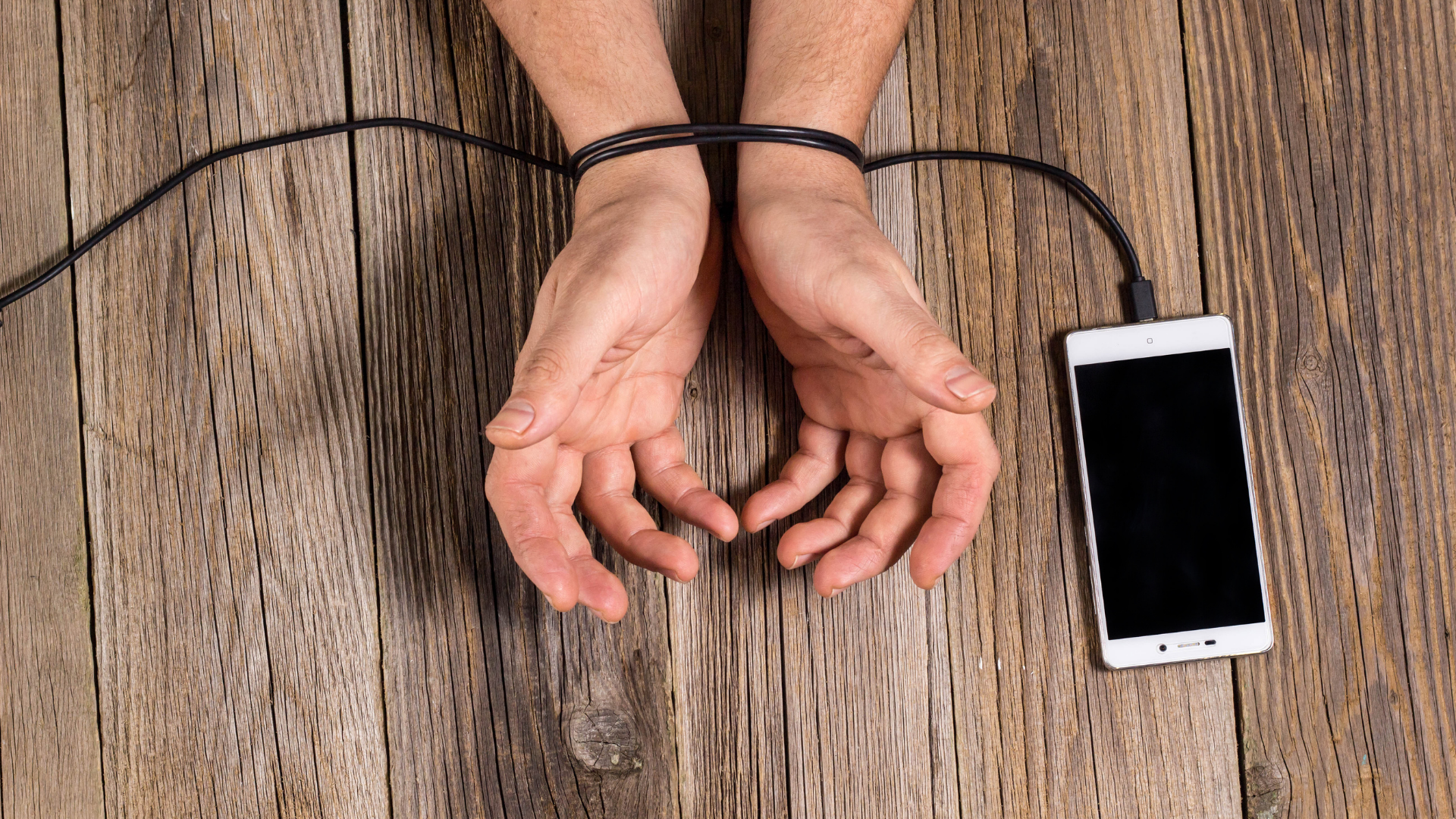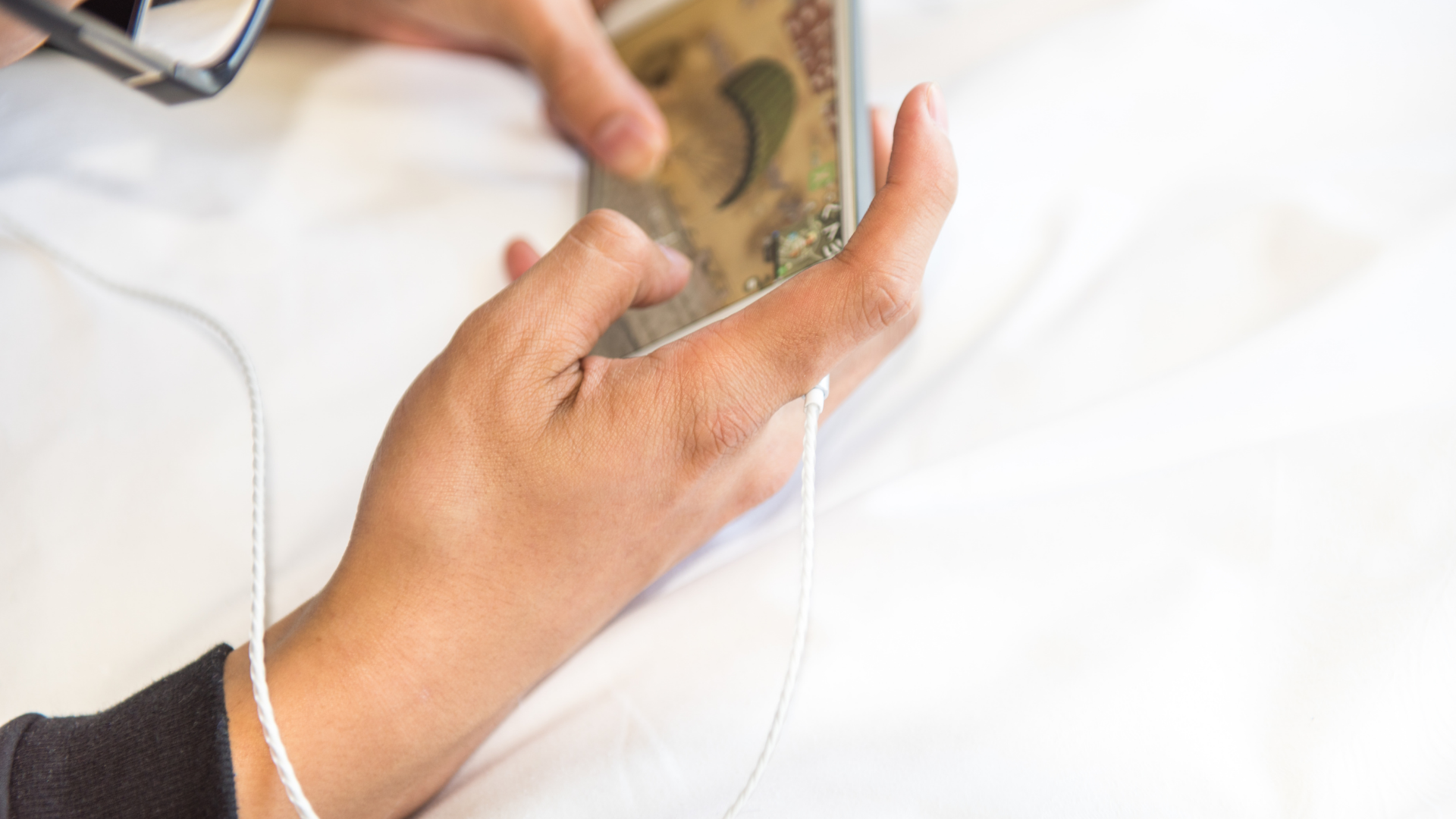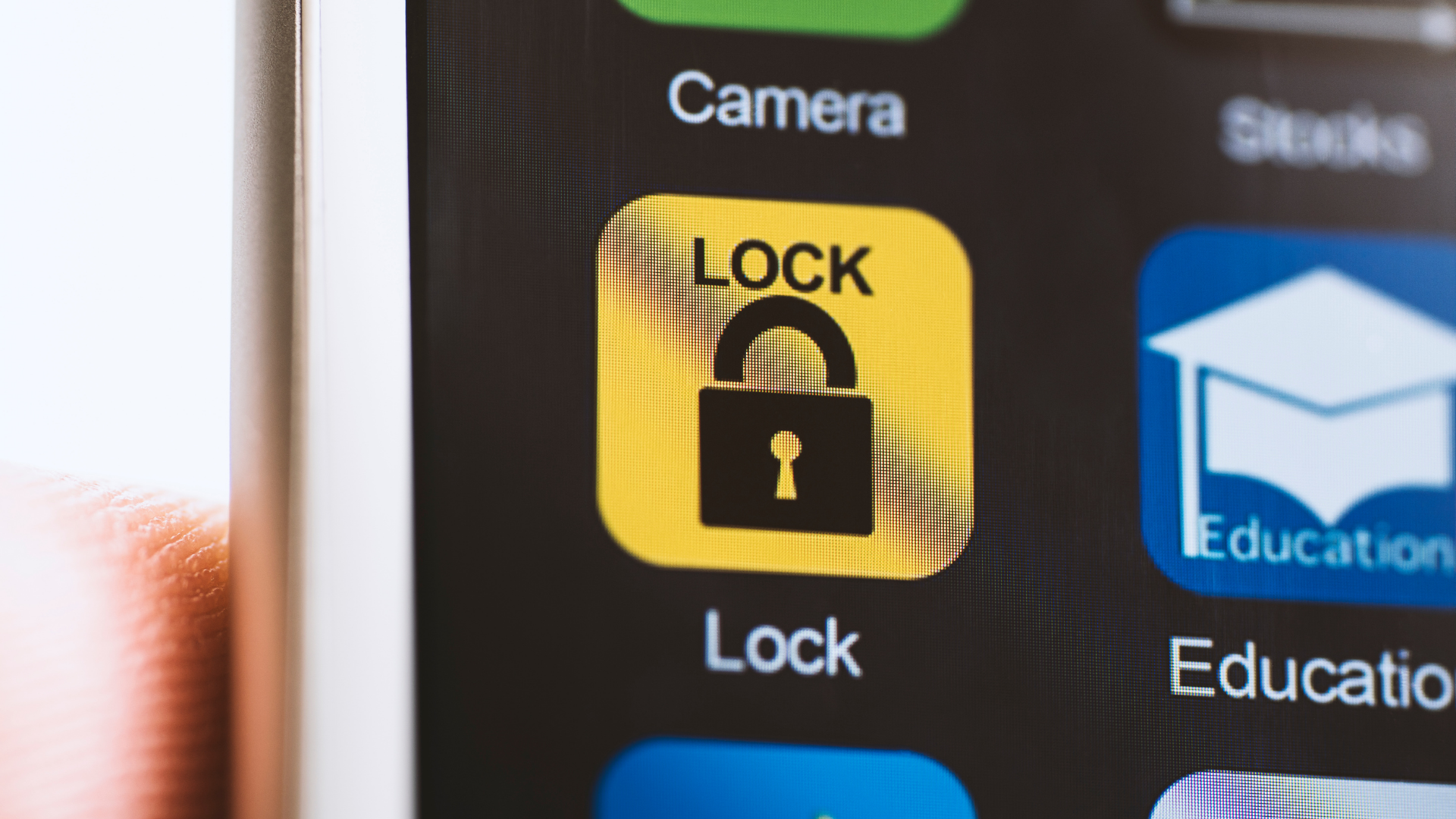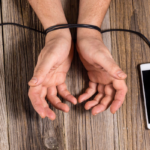Beating Addiction to Mobile Games
According to a recent study, 5.28 billion people have a smartphone. Communicating and connecting with the outside world has never been easier. In a world of instant gratification, we’ve become accustomed to having direct access to information and entertainment.

While most people use their smartphones primarily for communication and information gathering, others utilize them as their main source of entertainment on the go. Nearly 50% of all smartphone owners watch streaming videos and movies on their devices. In addition to videos, 2.4 billion people play mobile games on their phones — that’s nearly 90% of all gamers. And why not? Mobile games are fun, convenient, and a great way to fill your downtime. You can play while waiting for an appointment, commuting, or on your lunch break.
While playing mobile games might seem harmless, for those suffering from gaming addiction, having direct access to these games can be a dangerous luxury with negative impacts on their recovery process. Here we’ll take a closer look at mobile gaming addiction and share specific techniques for overcoming this growing problem.
Content
What is Mobile Gaming Addiction?
Similar to video game addiction, mobile gaming addiction occurs when users strongly rely on mobile games and feel an overwhelming desire to play, despite the negative impacts on their lives. Mobile gaming addicts play these games repeatedly and for increasingly longer periods of time. The characteristics of both mobile gaming addiction and addiction to other video games played on consoles or PCs are similar, as is the recovery process with a few notable differences.

Because mobile gaming addiction involves playing games on a smartphone or mobile device, it’s much easier and more convenient to satisfy the urge to play anywhere and at any time. Video game addicts, on the other hand, don’t have constant access to their games of choice the way mobile addicts do. For this reason, beating mobile game addiction requires some very specific gaming addiction self-help techniques.
Let’s take a closer look at what these are.
Ways to Beat Mobile Gaming Addiction
Beating mobile gaming addiction can be especially challenging given most people keep their smartphones on them 24/7. From sending text messages or checking emails to scrolling social media, smartphones act as a lifeline. This makes beating mobile gaming addiction especially challenging.

Increase your chances of success by implementing some of these changes.
Creating a Barrier for Entry
This is one of the easiest and most effective ways to stop yourself from playing mobile games. Chances are, you can’t get rid of your smartphone. That’s why you need to get rid of whatever games are creating your addiction — or at least make it more difficult for you to access them.
If you can handle it, delete all games from your mobile device. Without them installed on your smartphone, you can’t play them. When faced with an urge to play, you’ll need to access your phone’s app store, redownload the game, and potentially enter log-in information. During each step of this process, you can make the decision to stop and fight the urge to play. The more difficult it is to access these games, the less likely you are to relapse.
Some mobile gaming addicts prefer not to delete their favorite games completely but, instead, make it less convenient to play. This involves moving the apps around on your phone’s menu screens. Instead of having these mobile games on the first page of your device, bury them on the 3rd or 4th menu. Now, you have to take additional steps to play.
You can also place a lock on your phone or on the games themselves. All of these methods are designed to give mobile gaming addicts a chance to rethink their decision to play. Creating a barrier for entry stops mobile gaming addicts from acting impulsively, supporting their efforts to play less or stop playing completely.
Place Your Phone in a More Secure Location
Are you one of the 660,000 people who admit to texting while driving? Despite how dangerous you know it is when you hear your text alert go off or think of an urgent message you have to send, you may reach for your phone while behind the wheel. To prevent this temptation, some people place automated messages on their phones letting people know they’re driving. Another way to stop yourself from responding is placing your phone somewhere you can’t reach it like the backseat or glove compartment.
This same tactic can benefit mobile gaming addicts as well. If you’re at work, school, or performing another important task, place your smartphone in a secure location that’s out of reach. Playing mobile games is habit-forming. The phrase, “Idle hands are the devil’s workshop”, is at play here. If you find yourself with a few minutes, or even seconds, of downtime, you may instinctively reach for your smartphone. Most people do this without even thinking about it. You’re looking for a way to keep your hands and mind occupied. This connects back to society’s need for instant gratification. Placing your phone in a locker, drawer, or other room while working or focusing on an important task, can prevent distractions and make it less convenient to pick up and play without hesitation.
Find an Alternative Activity to Gaming
People play mobile games for a variety of reasons but primarily, they’re fun, simple to understand, and entertaining. Mobile games are designed using bright colors, playful characters, and instant rewards. Addicts often use mobile games as a form of stress relief or to offer a momentary distraction from everyday responsibilities. One way to kick your mobile gaming addiction is to find healthier alternative activities that provide the same benefits as gaming.
Listening to audiobooks, podcasts, or reading are great forms of entertainment that can often be done on the go. You can easily listen to audiobooks or podcasts during your morning commute. Opt for something humorous and entertaining to help reduce your stress and offer the same pleasant distraction as a mobile game. You can also try a self-help book or podcast to support your recovery process. If you commute on a bus or train, try reading a book, newspaper, or magazine. Just be mindful if you’re using a Kindle or other mobile device which may trigger your urge to play.
In addition to these activities, exercise and other hobbies like crafting can help reduce stress and keep both your hands and mind busy. Find a creative outlet that brings you the same type of pleasure that mobile games used to. You can also swap some mobile games with tactical ones. Games like Words with Friends, Scrabble, and Wordscapes are all available in some other form that doesn’t involve a mobile device. Invest in crossword puzzle books or other intellectually stimulating games like Sudoku or word searches.
Keep a Trigger Journal
Speaking of triggers, understanding what drives your urge to play mobile games can help you beat your addiction. Keep a journal and document each time you get the urge to play. Include things like where you are, what time of day it is, and what prompted your desire to game. You may notice that you game mostly when you’re bored, stressed, or are prompted by friends.
Document how you felt when the urge hit, how you handled it, and what you could’ve done differently. If you successfully overcame the temptation, write down what you did. For example, “I finished my assignment 5 minutes early but instead of playing my mobile game, I went for a walk until my next meeting.” This may help you make smarter decisions the next time you have a few minutes of “downtime” and feel compelled to play a mobile game to fill the void.
You may also notice patterns of behavior in your trigger journal. For example, you might game more often in the morning than at night. Your urges to play may be triggered primarily by friends challenging you or sending you an invite. Understanding what prompts you to play mobile games is a great first step in overcoming your addiction.
Mindfulness Meditations
Mindfulness meditations are popular techniques used to overcome all types of addiction, including mobile gaming addiction. Mindfulness is the focus of being aware of your body and thoughts in the present moment.
Mindfulness meditations can focus a lot on breathing to bring you into a state of awareness. Meditation exercises help you acknowledge and accept your thoughts, feelings, and bodily sensations without judgement. Ultimately the goal is to be able to observe negative thoughts without any additional judgement of them and hence decreasing the physical and mental toll they take on us.
In terms of beating mobile gaming addiction, mindfulness meditation can help you become more aware of your internal experiences and external surroundings, ultimately controlling your behavior and reactions. That means when you better understand your cravings and addictive thoughts, you can make more informed, healthier decisions.
Meditation helps you slow down. We live in a fast-paced society where we quickly move from one activity to another without much forethought. This can result in careless and impulsive decisions. By slowing down, you can achieve mental peace, clarity, and serenity. It’s this sense of peace and calm that many people use mobile games to achieve. Practicing mindfulness can help establish this inner calm without the need for external stimuli like mobile games. You may also gain a better appreciation for the natural sensory experiences that life offers and the beauty that surrounds you. This makes overstimulating, fast-paced, and sometimes chaotic, mobile games seem much less appealing.
Signs You Have an Addiction to Mobile Games
Before you can start implementing the techniques mentioned above, you have to acknowledge that you have a mobile gaming addiction. While everyone’s addiction may look different, there are a few common signs and symptoms to look for that indicate your habit has become an addiction.

- Social isolation
- Depression/anxiety
- Poor cognitive function
- Insomnia
- Obsessively thinking about gaming
- Feeling anxious or irritable when you can’t game
- An increasing need to play to achieve the same level of pleasure/happiness
- Trying but failing to quit
- Losing interest in other activities and hobbies you used to enjoy
- Problems at work or school
- Impaired personal relationships
- Blurred vision or eye strain
- Headaches
- Neck and shoulder pain
Any combination of these symptoms may indicate you have a mobile gaming addiction. As you can see, mobile gaming addiction can negatively impact all areas of your life from professional and personal relationships to your mental and physical well-being.
Beat Mobile Gaming Addiction Once and for All
Many of us are guilty of being slaves to our phones. We crave that constant connection to the outside world. If you have a mobile gaming addiction, your smartphone or device may be more dangerous than you realize.

Having immediate access to your favorite video games, while convenient at times, puts you at greater risk of developing an addiction. It also makes it more difficult to stop. But with the right mind frame, resources, and techniques, you can finally overcome your addiction to mobile games.
If you are worried about your gaming habits, The Mindful Gamer can help you get started on your journey toward an addiction-free life.








